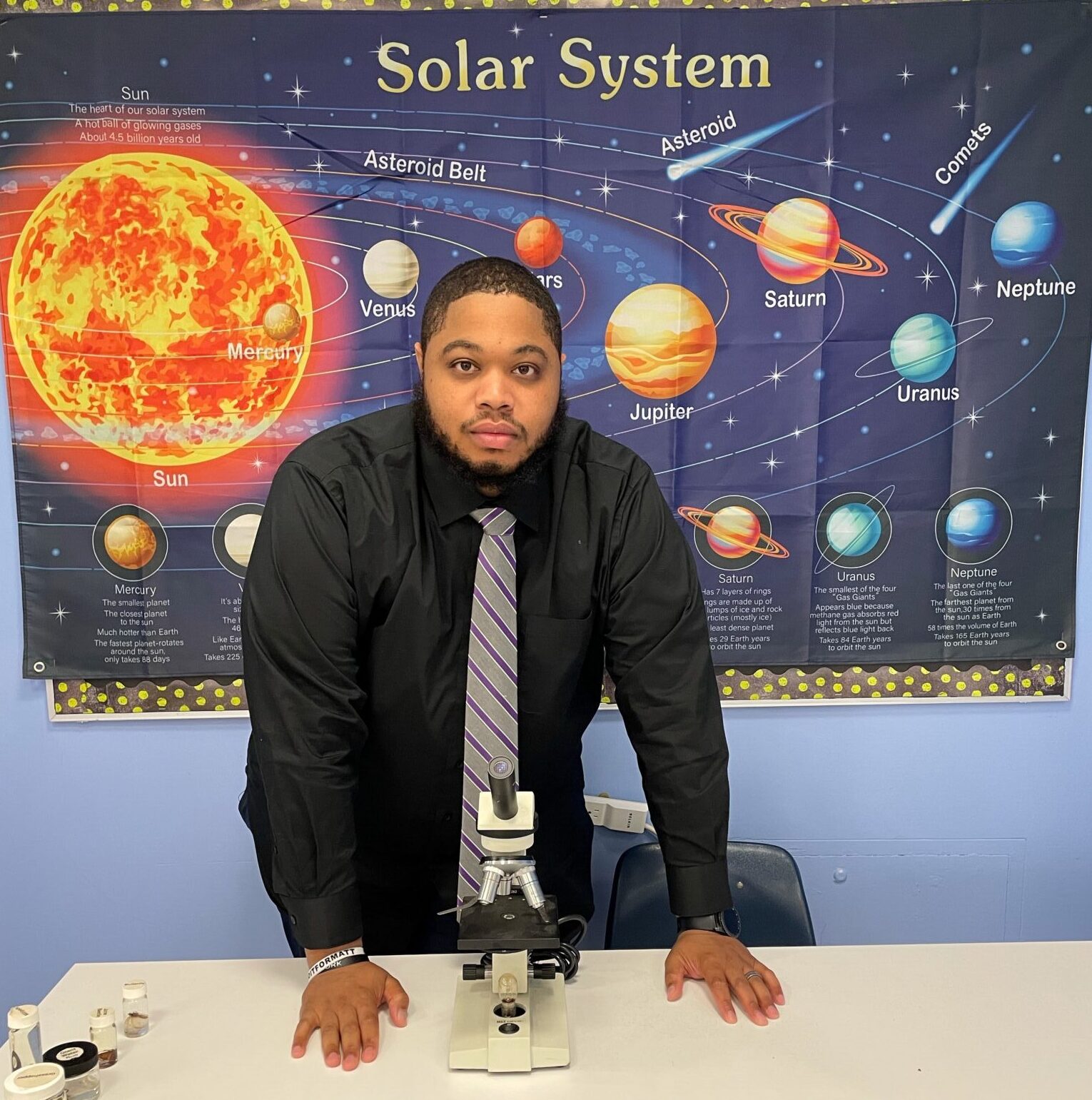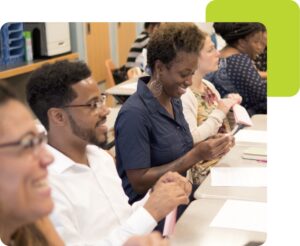Gregory: Science is a Necessity

Science is something where everyone gets something from it every day. It could be as simple as learning what a hypothesis is. Or learning about how electricity is converted into different forms. It's important for students to be exposed to science to pinpoint how it's connected to everyday life.
Gregory Herman, Science Teacher, KIPP STAR Harlem Elementary School
Gregory is an evangelist for science instruction. In fact, his students have science class every day of the week. For Gregory and the KIPP STAR Harlem leadership, that’s the standard for elementary science; they wouldn’t have it any other way. According to Gregory:
“No one asks why math or english everyday. Science is a necessity. Students have the most freedom. It’s more hands-on and inquiry based. You want students to have opportunities to feel success. Science is something where everyone gets something from it every day. It could be as simple as learning what a hypothesis is. Or learning about how electricity is converted into different forms. Students realize that there are everyday issues that plague our communities. It’s important for them to be exposed to science to be able to pinpoint how it’s connected to everyday life.”
Gregory teaches in Harlem – the same community in which he grew up. It is particularly meaningful for him to improve on the format of science education that he received as a young student:
“I always feared science. You fear what you don’t know. Born and raised in Harlem, I wasn’t exposed to science at an early age. Earth science was foreign to me; I struggled. I had to try extremely hard to understand basic science concepts. Part of that was how science was taught. We’d read a chapter in a textbook and then talk about it the following day. Now, students are presented with the problem of the unit. Whether it’s blackouts or butterflies missing, students are reminded of real life phenomena they are trying to solve.
I push inquiry almost every day. Today [students] explored which magnet is stronger. Every day they are presented with a problem. They think about how to solve a problem; do the experiment; discuss what they learned in their experiment; and repeat every single day. Kids have the freedom to touch objects they don’t see every day – have genuine discussions with their classmates. Students facilitate their own discussions without teachers’ leading. Student-led discussions are happening all the time with very little teacher input.”
The reaction from parents to their kids’ progress is one of the most gratifying aspects of the science program that Gregory, who also serves as the school’s science director, leads:
“I have parents come up to me and say thank you. That’s the best thing for me – that kids are loving science. That’s the number one goal. You can see the transformation. Another student, Devin, got into robotics. He’s a great problem solver. It built his confidence. Those kids truly flourish in science. It could be one unit that opens them up and shows them they can be scientists themselves. It sends a strong message to students.
Computational thinking is one method of science inquiry that Gregory is working on with his students, giving them an opportunity to approach a situation in a different manner than they have previously. In fact, it’s a program that KIPP NYC and the Robin Hood Foundation have partnered on to deliver to our elementary students. Here’s Gregory’s take on computational thinking (CT):
“CT is all about identifying a problem and coming up with solutions and breaking them down step by step. And then trying to figure out what went wrong if it didn’t work. Fix it, adjust, and try again. It’s important because it’s a life skill and something that most adults don’t learn until later on. If things go wrong, what do you do? It’s a good life skill to have. It promotes coding, robotics, engineering – all of those next gen standards for science. And it’s high level thinking to keep the students engaged. That’s the time I had to manage [students] the least because it’s rigorous and they are completely engulfed in the lesson. It’s beautiful to see.”
KIPP STAR Harlem Elementary students are also enjoying coding as part of their science education. Gregory ensures that students understand the connection between programming and computational thinking:
“We are doing coding [after school]. For me, it’s about the exposure and experience. It’s less about ‘can you code’, but the confidence it brings in the world of STEM. Do they learn basic skills? Yes! Is their confidence built up in STEM? Absolutely! This is how people create apps and the newest video games. This is why CT is so important – breaking things down into small steps. The exposure gets them thinking that this is in arm’s reach. I can do this if I apply myself.”
Gregory deserves a great deal of credit for developing the science program at his school; however, he acknowledges that he could not have done it without the school’s principal, Brandi Vardiman, and his partnership with Wyman Khuu and Chéla Wallace, the regional science team at KIPP NYC:
“Brandi is someone who is forging ahead for her strong beliefs in science. We took hours to figure out the schedule. It’s a testament to her, and Wyman and Chéla as well. They are passionate about science. I’m here because [they] truly care about science and what it can do for students in this community. And that means a lot to someone who was born and raised here.”

